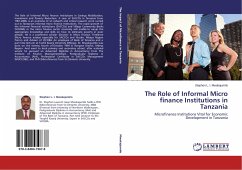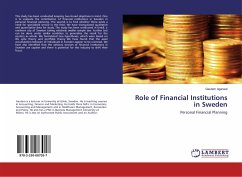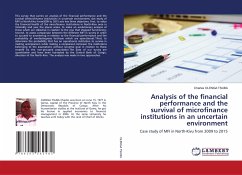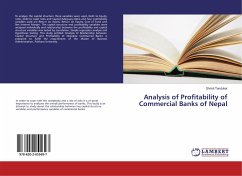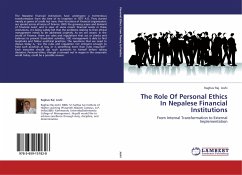
The Role Of Personal Ethics In Nepalese Financial Institutions
From Internal Transformation to External Implementation
Versandkostenfrei!
Versandfertig in 6-10 Tagen
32,99 €
inkl. MwSt.

PAYBACK Punkte
16 °P sammeln!
The Nepalese financial institutions have undergone a tremendous transformation from the time of its inception in 1877 A.D. They started merely as givers of credit but now, their functions of financial organization are spread across all areas of finance. With the growing scope and demand of financial need, and in view of some recent financial scams in these institutions, it is being widely felt that the problems relating to their ethical management needs to be addressed urgently. As we are aware, in the world of finance, there are rules and regulations that act as checks and balances to prevent...
The Nepalese financial institutions have undergone a tremendous transformation from the time of its inception in 1877 A.D. They started merely as givers of credit but now, their functions of financial organization are spread across all areas of finance. With the growing scope and demand of financial need, and in view of some recent financial scams in these institutions, it is being widely felt that the problems relating to their ethical management needs to be addressed urgently. As we are aware, in the world of finance, there are rules and regulations that act as checks and balances to prevent fraudulent activities. Still, management is able to find loopholes and follow unethical practices. The questions that we need to discuss today is, are the rules and regulation not stringent enough to hold such practices at bay, or is something more than rules required? Each executive should ask such questions to himself before taking decisions. Personal ethics, though a concept not in voguein the corporate world today, could be a possible answer.



